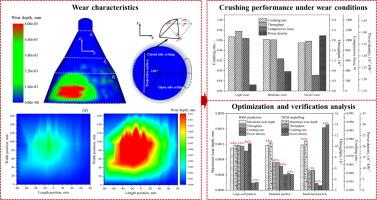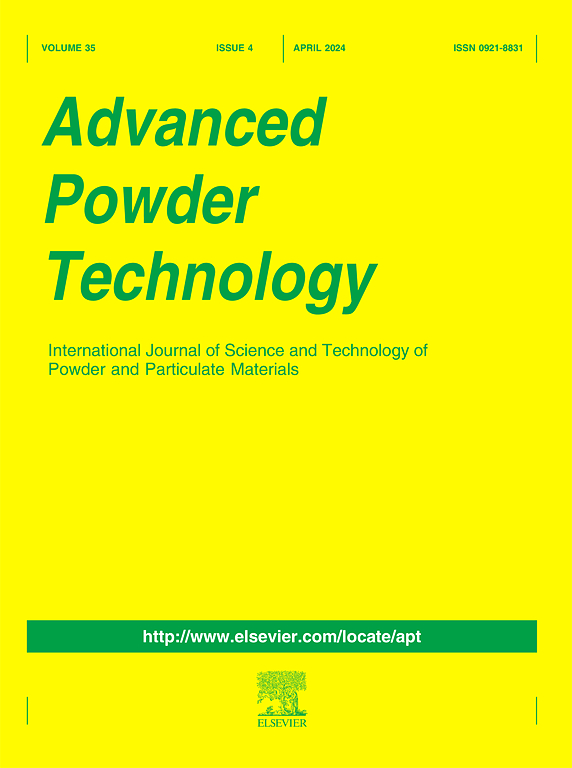Wear evolution of the mantle liner and its effect on the crushing characteristics of a lab-scale cone crusher: A numerical study
Abstract
Understanding the evolution of wear caused by the relative motion between the mantle liner and the concave liner in a cone crusher provides useful insights into the wear and crushing mechanism, which helps industries optimize operating parameters to reduce production costs. This work analyzed wear formation and evolution on the mantle liner using the discrete element method (DEM) with Archard models, in which the effects of operating parameters on wear depth and crushing performance under different wear conditions were investigated. Meanwhile, the response surface method (RSM) was employed to minimize the wear of the mantle liner and improve the crushing characteristics of the cone crusher. Results show that the evolution trend of the wear depth accords with the compressive force, and the extension of the wear area is consistent with the rotating direction of the mantle liner. Changes in the crushing chamber volume caused by operating parameters (except for the eccentric speed) and in the crushing chamber volume ratio caused by different meta-particle sizes can significantly cause different wear depths. And with the increase of the wear depth, the throughput, crushing rate, and power draw all decrease. Additionally, the presence of small-hard meta-particles leads to more severe wear.


 求助内容:
求助内容: 应助结果提醒方式:
应助结果提醒方式:


